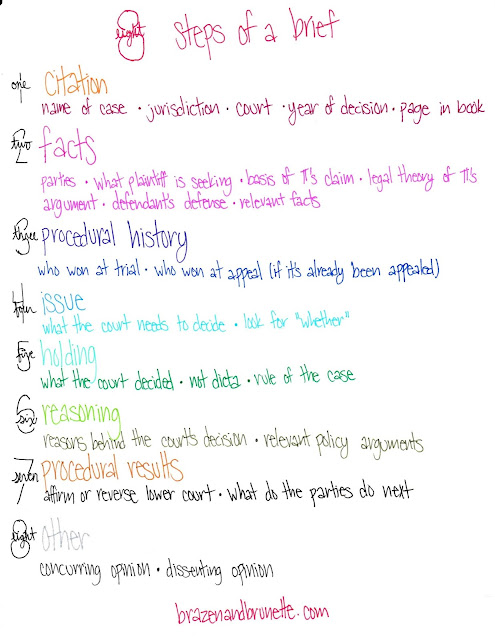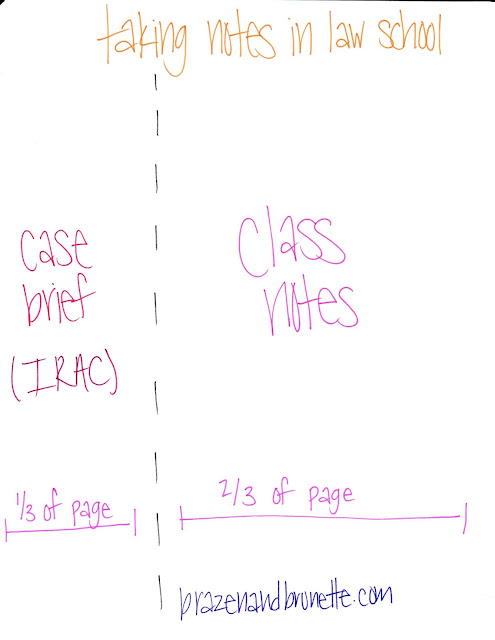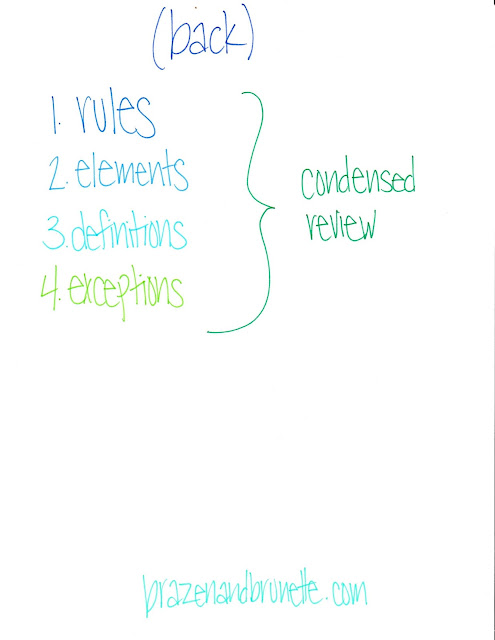1. Remember that this is just school
And NOT a competition! Yes I realize that there's a curve, but it'll mess up your head if you start seeing your classmates as the enemy instead of allies. And yes, there will be other students who might try to screw you over, but my advice is to just laugh at how psycho they're being about school.
If you start thinking that you have to be better than everyone else, I promise you that very very soon you are going to be miserable! A final note on the curve, the people who fall off the edge will start to be obvious soon as they stop showing up to class, or do but always unprepared. So don't overthink that curve.
Related: What to expect with the curve
Related: What to expect with the curve
2. Set alarms
Hell hath no fury like a woman professor scorned. Not to call anyone out, but I actually know a girl who missed a deadline my 1L year and it ended up being the deciding factor that made her fail that class. Even if you got by in college or grad school by just remembering due dates, you're about to realize (if you haven't already) that law school is all about having lots of different assignments to do everyday.
Of course you should be writing this stuff down in your planners, but if there's ever something you have to turn in you better set some alarms or you're going to get busy and forget.
Related: 6 things to do your first week of law school
Related: 6 things to do your first week of law school
3. Go over your finals
After your grades have been posted, email your professors and set up a time where you can go over your finals. Most likely they'll explain to you what was good, what was bad, and where you could've got more points if you did one more step. Hopefully they'll even let you look at an A paper from either your section or a previous year so that you can see what you need to be aiming for.
One time I saw an A paper and realized that there's absolutely no way that I could write that much, but seeing how the student tackled the problem helped me know what to do for the next semester. Even if you're not taking that professor again, most of their tests are structured the same so you can really learn a lot from this.
4. Try really hard in Legal Writing
I once went to a networking event with local alumni lawyers and asked a fresh lawyer what were the best classes he took in law school. He didn't even have to think and said Legal Research and Writing. Why? Because when you're a new lawyer, you're not Harvey Specter yet and will spend a whole lot of time drafting memos for the bigger lawyers.
Bosses know this so they definitely will have an interest in your writing skills. Also, being on a law journal is prestigious in law school, and this is one way to help you prepare to try to get on one.
Related: Tips for writing your legal memo and your appellate brief
Related: Tips for writing your legal memo and your appellate brief
5. Do some public speaking
Whether it's mock trial moot court, board of banisters, or something else, do it at least once. This is another suggestion straight from that lawyer. Even if you never want to be a trial lawyer, it looks really good on your résumé that you're comfortable speaking in front of others and are a well-rounded candidate.
Obviously don't overwhelm yourself trying to do too much and neglect your grades, but also don't forget about this until it's too late. If you meet any upperclassmen make sure to ask them if your school is known for any of these teams or if they have a recommendation for you.
Related: Moot court tips
Related: Moot court tips
6. Don't read every word
Anyone in academic support that read this would probably go NoOoOoO but I'm reading right along with y'all and I'm telling you that it's just not worth it. As you get further in to the semesters, the reading requirements will increase and the difficulty of the material will also likely increase. This means that if you are bothering to read every. single. word. in your book, you're going to end up spending 4 hours just for one class. Then'll you'll quickly burn out and end up hating law school.
Learn to prioritize your readings. Professor asks questions from the footnotes? yeah, read those. But a two-page introduction to a chapter where the author is just explaining his opinion on the subject? you can probably skim over that. This is also a skill that you'll need in the real world when you have one day to read through pages of documents.
Related: How to highlight efficiently
Related: How to highlight efficiently
7. KISS for your IRAC
A professor recently went over with my class on everything that should be in an IRAC and I had to hold myself from rolling my eyes. Just like what I was saying, learn to prioritize. Is the citation of your case from important? Almost certainly not, so it doesn't need to to go in this.
In fact, most of the facts don't even need to go in there. For example, in Garratt v. Dailey, all you really need to know is that a little boy pulled out a chair from underneath an old lady and so she fell and broke her hip. That is one sentence! When you read that short info in your brief, you'll still know enough about the case.
The issue should only be one short sentence, too. Your main focus should be on the rule and analysis, because that's what's going to be on your final.
Related: How to read a casebook for an IRAC
Related: How to read a casebook for an IRAC
8. Start doing some Pro Bono
This is one thing that I regret not being involved with more last year. Some schools require it to graduate, but even if yours doesn't you still should try to do some hours every semester. Pro bono is not community service (like volunteering at a food bank). It is you giving free legal help to the community. Because you're not licensed yet, you'll be set up to work with a lawyer or legal service in order to help the clients. This means that you're getting real lawyer experience and volunteering.
Obviously this will look fantastic on your résumé. Although the volunteering you do might be as small scale as interviewing clients, it's still a skill that you'll probably end up using as an attorney. And in a job interview when they ask about your experience, you can easily connect what you did pro bono with what you can do for that employer. Oh, and the ABA recognizes anyone who does more than 50 hours a year, so that'd look great for you too.
Related: How to squeeze pro bono time into a busy reading schedule and 8 places to look for pro bono opportunities
Related: How to squeeze pro bono time into a busy reading schedule and 8 places to look for pro bono opportunities
9. Don't compare yourself to others
The sun rises in the east and sets in the west just as surely as a 1L will fall flat on their face. It's a humbling experience, and you need to roll with it instead of thinking that you're the only one. It might not even be you messing up when you're called on or bombing a test, it could just be that you're sitting in class with a deer-in-the-headlights face thinking wtf omg WTF I don't understand?!
Just know that it'll happen to you but also it'll happen to everyone else. Law school will suck the confidence right out of you, and when it does you need to be able to look in the mirror and tell yourself that it's not that you're incompetent or don't belong here, it's that this is law school and at times it'll get harder. Just because someone seems like they know more than you doesn't mean that they actually do or are any better than you. Just make it past your 1L year because your 2L year is not near as nerve-racking!


































